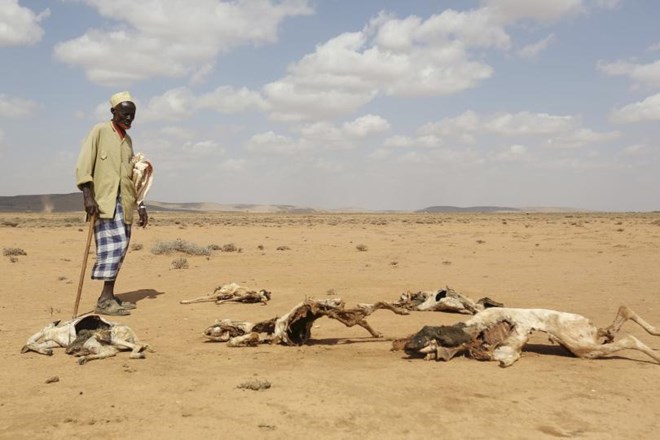What the Summer taught us
August 2022
Our experience was just a microcosm of the catastrophic impacts of climate change around the world: floods and droughts acting in tandem to destroy lives and livelihoods.

The Horn of Africa, and Somalia in particular, is suffering an unprecedented drought. Large areas have had no rain for two years; 20 million people are at risk of starvation; cattle and livestock are dying by countless thousands and children, of course, are at the greatest risk of malnourishment.
At the same time the floods in Pakistan have affected 33 million people - half the population of the UK. This is devastation on an unimaginable scale. The current count is 1,100 people dead; 250,000 km2, a third of the country, lies under water, with millions of acres of agricultural land ruined; 700,000 cattle drowned and the damage already put at over $10 billion.
The poorest of the poor are suffering the injustice of the climate crisis, while the costs of our failure to transition away from fossil fuels are going to far outweigh the costs of the transition itself. Massive crop failures, combined with the war in Ukraine, will drive up food prices here, affecting the poorest most acutely.
We have put 2.4 trillion tonnes of CO2 into our delicate atmosphere. When you add methane into the mix, the warming influence of the whole basket of greenhouse gases has climbed a staggering 47% since 1990.
In his recent book Hothouse Earth, Bill McGuire says, ‘If world leaders had taken purposeful avoiding action in 1990 when the IPCC published its first report, we could be well on top of the problem now, with fossil fuels largely combined to the dustbin, renewables dominant and emissions under control and on the way down.’
‘We have been put on notice time and time again about the potentially catastrophic impact of rising greenhouse gas levels, but we have repeatedly refused to listen and chosen not to act.’
‘None of the world’s biggest economies are on target to keep the promises they made in Paris and current estimates put the global average temperature rise at 2.7° when anything over 2° will seriously threaten the stability of global society.
In the face of this we are all likely to feel powerless. ‘What can I do?’ ‘How will anything I do make a difference?’ And indeed, I am haunted by the same sense of futility. But there are reasons why we should all take action:
· For the sake of our integrity. We will be able to look our children in the eye and they will know we did our best.
· Because we should ALL tread more lightly on the planet, and as members of affluent western society, we tread far more heavily than most of the world’s population.
· Because this is how movements grow. Do it. Talk about it. Get others to do it too.
· Because we live in a democracy with freedom of speech, so ultimately we can push, pull or drag our politicians into taking action.
Unfortunately, far too many people feel that they are exceptional. That their wealth entitles them to live differently. But that is certainly not what Christ taught us. He taught us to open our hearts.
If our hearts are not weeping now, there is something wrong with our hearts.
If our politicians are not moved to action, there is something wrong with our politicians.
